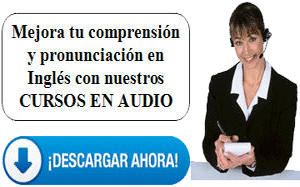College Textbooks Moving from
Print to Digital
The rising cost of attending a college or university in the United
States has been an issue of much concern and debate in recent years.
But what often does not get discussed is the hidden costs related to
higher education, says Michael Hansen. He is chief executive officer of
Cengage Learning, a publisher of textbooks and developer of other
learning materials.
Hansen notes that the hidden costs are not immediately included in the
cost of a student’s tuition. Such costs include student housing and
healthcare, and even textbooks, and he admits these costs are not small.
The College Board is a non-profit organization that researches and
supports American higher education. In 2018, it found that the average
yearly cost of books and supplies for a student at a public, four-year
college in his or her home state was $1,240.
For years, higher education textbook publishers have tried to find ways
of reducing their costs to students, says Hansen. Some have developed
programs that permit students to temporarily own textbooks and then
return them once they are no longer needed. And many schools buy
textbooks back from students and offer them to other students at a
reduced price.
Yet Hansen says such efforts do not do much to solve the problem of
rising costs. That is why, he says, his company launched a new product,
called Cengage Unlimited, a little over a year ago.
A growing movement towards digital textbooks
Cengage Unlimited lets students make use of all of the textbooks the
company publishes, but in digital form instead of physical copies.
Cengage Unlimited offers this service to students for about $120 each
study term or $180 a year.
Hansen says that the service offers more than just textbooks. The
digital products include videos and computer software programs that test
students’ understanding of what they are reading.
In the past, publishing companies often would wait about three years
before releasing popular textbooks with more up to date information,
Hansen says. But with Cengage Unlimited, the books’ authors can make
changes to the digital versions at any given time.
“If we have an election, they can instantaneously provide new examples,”
Hansen told VOA. “If we have an economic interest rate change, they can
provide very direct, real-time examples of what is going on, which makes
the material much more … relevant for the student and faculty.”
Hansen says that within two months of Cengage Unlimited being offered
last August, 500,000 students have signed up for the service.
In the United States, Cengage is not the only publisher to move in this
direction. Studies have shown that, in large part because of cost, up to
64 percent of college students choose not to buy the required textbooks
for their classes.
So in 2014, Pearson, another educational publisher, launched its Digital
Direct Access model, which offers digital textbooks to students and
teaching materials to professors. Macmillan Learning has a similar
service, called LaunchPad.
Brian Murphy notes that publishing houses that offer such services are
helping themselves just as much as they are helping students.
Murphy has worked in higher education textbook sales for over 30 years
for companies including Pearson and his own Brian Murphy Group. He notes
that publishers save a lot of money by not making physical copies of
books. Also, with physical books, companies really only make money when
a book is first sold. Since digital materials cannot be re-sold, every
student who is using them has to pay the company.
Some barriers to the move
Yet Murphy warns that as more publishers move towards digital models,
they must be mindful of how they do so. Some digital textbooks he has
seen have simply been electronic versions of physical textbooks. Most
students like carrying books they can take notes in, and simple digital
materials do not offer anything extra to make them more desirable.
Murphy says that if publishers want their digital products to be
successful, they must design the user experience to be as interactive as
possible. He adds that another barrier to the success of digital
textbook services is college faculty.
Since publishers digitally offer all of their publications at once, they
want colleges and universities to make use of all of the materials they
offer. Many companies are attempting to set up partnerships with
schools, so that the cost for using their digital services would be
included in the price of tuition.
Then schools could choose to replace all traditional textbooks they sell
with these products. But this often means that school administrators are
deciding what materials professors must use in their classes.
“The professor … has intellectual freedom to choose their own content
for their courses,” said Murphy. “If they’ve been teaching accounting
for 30 years with one book, and the school makes an agreement with
another publisher with a different book, the professor’s not going to be
happy with that.”
If professors are not satisfied with the quality of the digital content,
they will likely ask students to buy other traditional textbooks,
reducing the effect of cost saving efforts, he noted.
Textbook authors have their own concerns about the move to digital.
Michael Spinella is the head the Textbook and Academic Authors
Association. He says that many publishers are asking authors to do more
in addition to producing the content and know more about new teaching
methods, all without increases in pay. It is still not clear how
successful these new materials will be in replacing traditional ones, he
says. |
![]() ).
Utiliza el botón derecho del ratón y "guardar enlace" para descargar el
fichero a tu PC, tablet, Smartphone, etc.
).
Utiliza el botón derecho del ratón y "guardar enlace" para descargar el
fichero a tu PC, tablet, Smartphone, etc.![]() Escucha el audio
Escucha el audio



